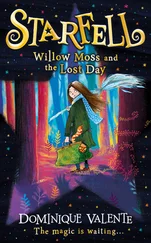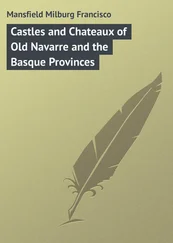Ursula Le Guin - Old Music and the Slave Women
Здесь есть возможность читать онлайн «Ursula Le Guin - Old Music and the Slave Women» весь текст электронной книги совершенно бесплатно (целиком полную версию без сокращений). В некоторых случаях можно слушать аудио, скачать через торрент в формате fb2 и присутствует краткое содержание. Жанр: Фантастика и фэнтези, на английском языке. Описание произведения, (предисловие) а так же отзывы посетителей доступны на портале библиотеки ЛибКат.
- Название:Old Music and the Slave Women
- Автор:
- Жанр:
- Год:неизвестен
- ISBN:нет данных
- Рейтинг книги:4 / 5. Голосов: 1
-
Избранное:Добавить в избранное
- Отзывы:
-
Ваша оценка:
- 80
- 1
- 2
- 3
- 4
- 5
Old Music and the Slave Women: краткое содержание, описание и аннотация
Предлагаем к чтению аннотацию, описание, краткое содержание или предисловие (зависит от того, что написал сам автор книги «Old Music and the Slave Women»). Если вы не нашли необходимую информацию о книге — напишите в комментариях, мы постараемся отыскать её.
and after that imported to fb2 by soshial (21.05.2008) http://torrents.ru/forum/viewtopic.php?t=463754
Old Music and the Slave Women — читать онлайн бесплатно полную книгу (весь текст) целиком
Ниже представлен текст книги, разбитый по страницам. Система сохранения места последней прочитанной страницы, позволяет с удобством читать онлайн бесплатно книгу «Old Music and the Slave Women», без необходимости каждый раз заново искать на чём Вы остановились. Поставьте закладку, и сможете в любой момент перейти на страницу, на которой закончили чтение.
Интервал:
Закладка:
The zadyo opened the door and told him he could come out.
"How close is the Liberation Army, zadyo?" he asked. He expected no answer. He went out onto the terrace. It was late afternoon. Kamsa was there, sitting with the baby at her breast. Her nipple was in his mouth, but he was not sucking. She covered her breast. Her face as she did so looked sad for the first time.
"Is he asleep? May I hold him?" Esdan said, sitting by her.
She shifted the little bundle over to his lap. Her face was still troubled. Esdan thought the child's breathing was more difficult, harder work. But he was awake, and looked up into Esdan's face with his big eyes. Esdan made faces, sticking out his lips and blinking. He won a soft little smile.
"The hands say, that army do come," Kamsa said in her very soft voice.
"The Liberation?"
"Enna. Some army."
"From across the river?"
"I think."
"They're assets—freedmen. They're your own people. They won't hurt you." Maybe.
She was frightened. Her control was perfect, but she was frightened. She had seen the Uprising, here. And the reprisals.
"Hide out, if you can, if there's bombing or fighting," he said. "Underground. There must be hiding places here."
She thought and said, "Yes."
It was peaceful in the gardens of Yaramera. No sound but the wind rustling leaves and the faint buzz of the generator. Even the burned, jagged ruins of the house looked mellowed, ageless. The worst has happened, said the ruins. To them. Maybe not to Kamsa and Heo, Gana and Esdan. But there was no hint of violence in the summer air. The baby smiled its vague smile again, nestling in Esdan's arms. He thought of the stone he had lost in his dream.
He was locked into the windowless room for the night. He had no way to know what time it was when he was roused by noise, brought stark awake by a series of shots and explosions, gunfire or handbombs. There was silence, then a second series of bangs and cracks, fainter. Silence again, stretching on and on. Then he heard a flyer right over the house as if circling, sounds inside the house: a shout, running. He lighted the lamp, struggled into his trousers, hard to pull on over the swathed foot. When he heard the flyer coming back and an explosion, he leapt in panic for the door, knowing nothing but that he had to get out of this deathtrap room. He had always feared fire, dying in fire. The door was solid wood, solidly bolted into its solid frame. He had no hope at all of breaking it down and knew it even in his panic. He shouted once, "Let me out of here!" then got control of himself, returned to the cot, and after a minute sat down on the floor between the cot and the wall, as sheltered a place as the room afforded, trying to imagine what was going on. A Liberation raid and Rayaye's men shooting back, trying to bring the flyer down, was what he imagined.
Dead silence. It went on and on.
His lamp flickered.
He got up and stood at the door.
"Let me out!"
No sound.
A single shot. Voices again, running feet again, shouting, calling. After another long silence, distant voices, the sound of men coming down the corridor outside the room. A man said, "Keep them out there for now," a flat, harsh voice. He hesitated and nerved himself and shouted out, "I'm a prisoner! In here!"
A pause.
"Who's in there?"
It was no voice he had heard. He was good at voices, faces, names, intentions.
"Esdardon Aya of the Embassy of the Ekumen."
"Mighty Lord!" the voice said.
"Get me out of here, will you?"
There was no reply, but the door was rattled vainly on its massive hinges, was thumped; more voices outside, more thumping and banging. "Ax," somebody said, "Find the key," somebody else said; they went off. Esdan waited. He fought down a repeated impulse to laugh, afraid of hysteria, but it was funny, stupidly funny, all the shouting through the door and seeking keys and axes, a farce in the middle of a battle. What battle?
He had had it backwards. Liberation men had entered the house and killed Rayaye's men, taking most of them by surprise. They had been waiting for Rayaye's flyer when it came. They must have had contacts among the field hands, informers, guides. Sealed in his room, he had heard only the noisy end of the business. When he was let out, they were dragging out the dead. He saw the horribly maimed body of one of the young men, Alatual or Nemeo, come apart as they dragged it, ropy blood and entrails stretching out along the floor, the legs left behind. The man dragging the corpse was nonplussed and stood there holding the shoulders of the torso. "Well, shit," he said, and Esdan stood gasping, again trying not to laugh, not to vomit.
"Come on," said the men with him, and he came on.
Early-morning light slanted through broken windows. Esdan kept looking around, seeing none of the housepeople. The men took him into the room with the packdog head over the mantel. Six or seven men were gathered around the table there. They wore no uniforms, though some had the yellow knot or ribbon of the Liberation on their cap or sleeve. They were ragged, though, hard. Some were dark, some had beige or clayey or bluish skin, all of them looked edgy and dangerous. One of those with him, a thin, tall man, said in the harsh voice that had said "Mighty Lord" outside the door: "This is him."
"I'm Esdardon Aya, Old Music, of the Embassy of the Ekumen," he said again, as easily as he could. "I was being held here. Thank you for liberating me."
Several of them stared at him the way people who had never seen an alien stared, taking in his red-brown skin and deep-set, white-cornered eyes and the subtler differences of skull structure and features. One or two stared more aggressively, as if to test his assertion, show they'd believe he was what he said he was when he proved it. A big, broad-shouldered man, white-skinned and with brownish hair, pure dusty, pure blood of the ancient conquered race, looked at Esdan a long time. "We came to do that," he said.
He spoke softly, the asset voice. It might take them a generation or more to learn to raise their voices, to speak free.
"How did you know I was here? The fieldnet?"
It was what they had called the clandestine system of information passed from voice to ear, field to compound to city and back again, long before there was a holonet. The Hame had used the fieldnet and it had been the chief instrument of the Uprising.
A short, dark man smiled and nodded slightly, then froze his nod as he saw that the others weren't giving out any information.
"You know who brought me here, then—Rayaye. I don't know who he was acting for. What I can tell you, I will." Relief had made him stupid, he was talking too much, playing hands-around-the-flowerbed while they played tough guy. "I have friends here," he went on in a more neutral voice, looking at each of their faces in turn, direct but civil. "Bondswomen, house people. I hope they're all right."
"Depends," said a grey-haired, slight man who looked very tired.
"A woman with a baby, Kamsa. An old woman, Gana."
A couple of them shook their heads to signify ignorance or indifference. Most made no response at all. He looked around at them again, repressing anger and irritation at this pomposity, this tight-lipped stuff.
"We need to know what you were doing here," the brown-haired man said.
"A Liberation Army contact in the city was taking me from the Embassy to Liberation Command, about fifteen days ago. We were intercepted in the Divide by Rayaye's men. They brought me here. I spent some time in a crouchcage," Esdan said in the same neutral voice. "My foot was hurt, and I can't walk much. I talked twice with Rayaye. Before I say anything else I think you can understand that I need to know who I'm talking to."
The tall thin man who had released him from the locked room went round the table and conferred briefly with the grey-haired man. The brown-haired one listened, consented. The tall thin one spoke to Esdan in his uncharacteristically harsh, flat voice: "We are a special mission of the Advance Army of the World Liberation. I am Marshal Metoy." The others all said their names. The big brown-haired man was General Banarkamye, the tired older man was General Tueyo. They said their rank with their name, but didn't use it addressing one another, nor did they call him Mister. Before Liberation, rentspeople had seldom used any titles to one another but those of parentage: father, sister, aunty. Titles were something that went in front of an owner's name: Lord, Master, Mister, Boss. Evidently the Liberation had decided to do without them. It pleased him to find an army that didn't click its heels and shout Sir! But he wasn't certain what army he'd found.
Читать дальшеИнтервал:
Закладка:
Похожие книги на «Old Music and the Slave Women»
Представляем Вашему вниманию похожие книги на «Old Music and the Slave Women» списком для выбора. Мы отобрали схожую по названию и смыслу литературу в надежде предоставить читателям больше вариантов отыскать новые, интересные, ещё непрочитанные произведения.
Обсуждение, отзывы о книге «Old Music and the Slave Women» и просто собственные мнения читателей. Оставьте ваши комментарии, напишите, что Вы думаете о произведении, его смысле или главных героях. Укажите что конкретно понравилось, а что нет, и почему Вы так считаете.












